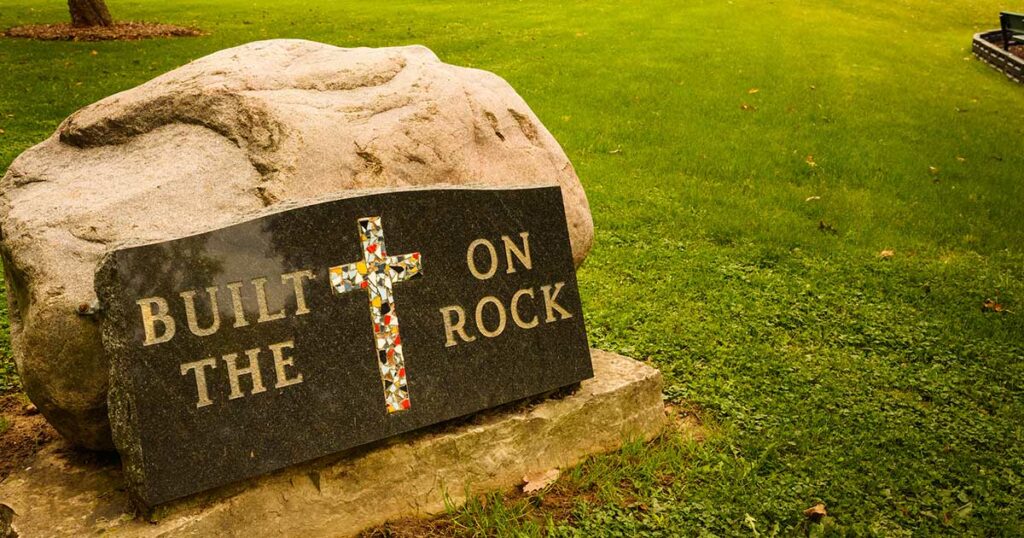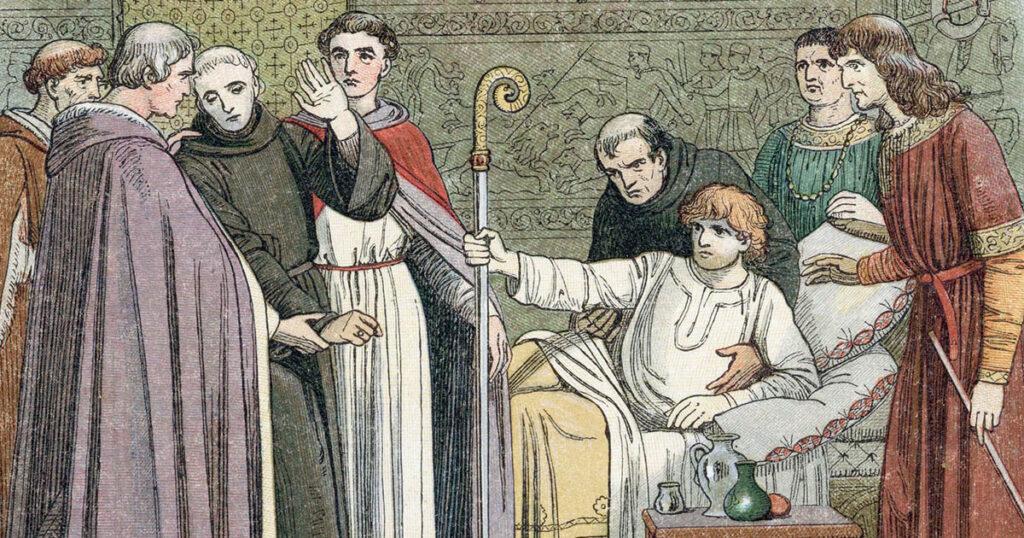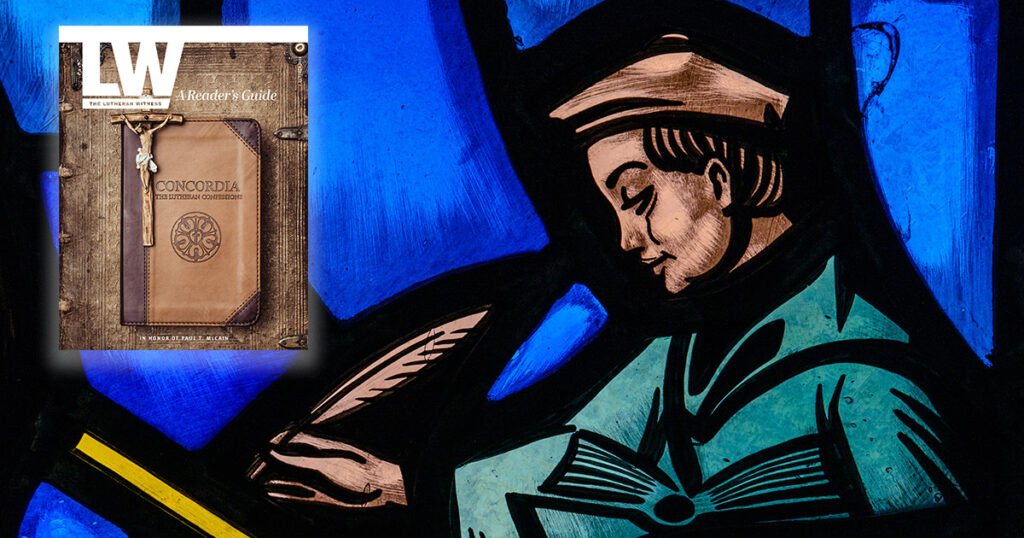In Matthew 16:13–20, we read about one of the most colorful and beloved figures in the Bible: Saint Peter. When Jesus and the disciples arrived in Caesarea Philippi, He asked them: “Who do people say that the Son of Man is?” Jesus used the phrase “Son of Man” to refer to Himself: “So who do people say that I am?” And yet the phrase is also a reminder that Jesus was a human being just like one of us, a son of man. But the people of His day knew He was special.
The disciples answered: “Some say John the Baptist, others say Elijah, and others Jeremiah or one of the prophets.” John the Baptist, Elijah, Jeremiah — they were all prophetic figures. He seemed to be “one of the prophets” come to speak God’s end time revelation, but still just a man, a son of man.
Simon Peter knew better. Jesus “said to them, ‘But who do you say that I am?’” Peter answered: “You are the Messiah, the Son of the living God” (Matt. 16:16, CSB). No one had recognized Jesus as the Messiah in Matthew’s Gospel up to this point. Peter was the first, and yet Peter doesn’t stop. He adds that Jesus is the Son of the living God — the God who offers life. Even as God alone offers life, Jesus will soon make clear that He has the power of life and death.
Jesus: “Blessed are you, Simon Bar-Jonah! For flesh and blood has not revealed this to you, but my Father who is in heaven. And I tell you, you are Peter (petros), and on this rock (petra) I will build my church, and the gates of hell shall not prevail against it. I will give you the keys of the kingdom of heaven, and whatever you bind on earth shall be bound in heaven, and whatever you loose on earth shall be loosed in heaven” (Matt. 16:17–19).
What powerful words. What an amazing blessing. Unfortunately, Jesus’ words have long been overshadowed by a debate over the significance of this blessing of Peter. For Roman Catholics, this passage forms the basis for the papal office. The administration of a worldwide church stems, they say, from Peter. After all, he’s the one who’s blessed here — and they’re right about that. Lutherans point out in response that this passage says nothing about a whole series of men standing in some unbroken line of papal succession from Peter — and the Lutherans are right about that. Yes, it is Peter himself who is blessed as the rock on which Jesus will build His church, but it is a Peter not just at any moment in his life. No, Christ blesses confessing Peter who speaks and confesses the revelation God had given him. As Peter stands and recognizes who Christ is, he is the Rock, the blessed one. It is the confessing Peter whom Jesus praises.
Whether or not Peter fully realized all that he had just said, this was Peter’s moment to shine, and yet the glory was ultimately God’s. Jesus tells us that God had revealed this insight to Peter. By this point in the Gospel of Matthew, we’ve come to know something of Peter. He had sometimes proven rash, confused and overconfident. There were even times he would prove cowardly. And yet, as vacillating and fickle as Peter could be, Jesus singled out Peter that day: “You are Peter, and on this rock I will build my church.” The church doesn’t ultimately depend on Peter. Jesus builds His church, not Peter. But when Peter opened his mouth that day at Caesarea Philippi, divine revelation and power manifested itself. The bold, confessing Peter would be the rock on which Jesus would build His church, and the gates of hell will not prevail against it. Who would have ever guessed that a poor Galilean fisherman would become the foundation for a new people of God?
The second confession at Caesarea Philippi
At the very same location, Caesarea Philippi, once again God worked a miracle through the confession of St. Peter. The miracle: The first Gentiles came to faith as Peter told them of Jesus the Messiah, the Son of the living God. And the gates of hell could not prevent it. As Peter spoke those words of salvation to the Roman soldier Cornelius and his household, he proved to be the rock (Acts 10–11). Soon other Gentiles joined the church Cornelius had entered through Peter’s witness.
Perhaps that’s why Jesus called him “Simon bar-Jonah,” “son of Jonah,” when we know from John’s Gospel that Peter was the son of John (John 1:42), not Jonah. While John and Jonah were similarly sounding, no one would have confused the names. No, Peter was to be like one of the prophets, like John the Baptist, or Elijah, or Jeremiah — the son of Jonah. Jesus’ followers were to make disciples of all nations, but Simon Peter required God’s intervention and vision to bring the Gospel to the unclean Gentiles (Acts 10). Peter was to be God’s prophetic voice to open the doors for the Gentiles to come to faith, as had Jonah all those years before. John the Baptist had warned the Jews that God could raise up from dead stones children of Abraham (Matt. 3:9), and now God was doing exactly that, thanks to Peter, the petra, the rock.
Jesus admonished His disciples a little earlier in Matthew’s Gospel to build their houses on the bedrock — the petra — of Jesus’ teachings (Matt. 7:24). As Peter stood there confessing what God had revealed, “the rock” embodied that teaching. This is a passage primarily about who Jesus is, rather than who Peter is, let alone his papal descendants. In making that confession, Peter became the pillar of a new temple that Jesus Himself was building. You may remember that the first Jewish Christians called Peter a “pillar” (Gal. 2:9). It is the confession of who Jesus is that makes Peter into something more than he could ever have been on his own. But there would be other “pillars” too, James and John. Others had recognized Jesus to be the Son of God even before Peter made his confession (Matt. 14:33). And Jesus revealed His identity to others besides Peter, especially to infants and babes (Matt. 11:25–27). And in Matthew 18:18, the power to bind and loose belonged to the entire church, and this is still true today as it holds fast to Jesus’ teachings.
What an incredible gift we, as members of Christ’s church, possess: the power to speak to people about the person and work of Jesus Christ, opening and closing the gates of heaven. Is the Lord Jesus Christ on the tip of your tongue? At the very moment we open our mouths to speak of Christ the divine revelation that transformed Peter is transforming us, and it also transforms the people in whose midst we speak. It is the power of the Word of God and of that divinely gifted confession. When we stand firm on what God has revealed to us in His Word then, like Peter, nothing — not even Satan and all his minions — will be able to stand against us. We are God’s instruments as others come to receive Jesus Christ as their precious Lord and Savior.
Photo: LCMS Communications/Erik M. Lunsford






RE: “At the very moment we open our mouths to speak of Christ the divine revelation that transformed Peter is transforming us, and it also transforms the people in whose midst we speak.”
Were all who heard Jesus or the Apostles “transformed”? Even contemporary experience — including that of full-time missionaries — tells us that what follows from hearing God’s message may be belief or unbelief, interest or indifference, love or hate. Here are just a few pertinent Bible verses:
“The wind blows where it wishes….” (John 3:8 ESV)
“[T]hey may indeed see but not perceive, and may indeed hear but not understand….” (Mark 4:12 ESV)
“A sower went out to sow….” (Matthew 13:3ff ESV)
“Now when they heard of the resurrection of the dead, some mocked. But others said, ‘We will hear you again about this.’ So Paul went out from their midst. But some men joined him and believed….” (Acts 17:32-34 ESV)
“[My word] shall not return to me empty, but it shall accomplish that which I purpose, and shall succeed in the thing for which I sent it.” (Isaiah 55:11 ESV)
But what can we know of God’s purposes in a particular instance of Christian witness?
“[God says], ‘I will have mercy on whom I have mercy, and I will have compassion on whom I have compassion.’ So then it depends not on human will or exertion, but on God, who has mercy.” (Romans 9:15-16 ESV)
“Oh, the depth of the riches and wisdom and knowledge of God! How unsearchable are his judgments and how inscrutable his ways!” (Romans 11:33 ESV)
It is simply our calling to declare (1 Peter 2:9) and demonstrate (Eph. 2:10) the mercies of God in Christ. And it is “only God who gives the growth.” (1 Cor. 3:7 ESV) However faithful or bold our witness, God “transforms” people when he pleases.
Wonderful read!! Great encouragement to speak up!